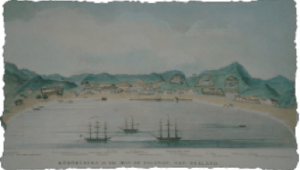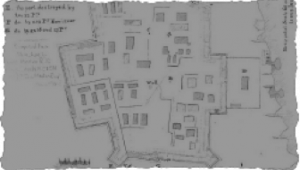
The Northern War and
the Treaty of Waitangi



When the Treaty was signed in 1840, Māori expectations were very different to those of the British. The administrators and missionaries who facilitated the deal genuinely believed that Māori would benefit from British rule. However, these men must have known that the concept of “sovereignty” had not been properly explained.
Very soon after 1840, it became apparent to Northern Māori that British sovereignty undermined Māori mana. The missionary Richard Taylor recorded the view of Chief Pana-kareao of Te Rarawa:
“He thought the shadow of the land would go to the Queen and the substance remain with them but now he fears the substance of it will go to them and the shadow only be [the Māori] portion.”
The Northern War wasn’t really a “rebellion”. It began as a protest, when Hone Heke demanded that the British address legitimate Ngāpuhi grievances. He didn’t want the settlers and their government to leave New Zealand – he wanted them to listen and to behave in accordance with the Treaty. This view was commonly held among Northern Māori at the time, even if they did not support Heke himself. In fact, the underlying sentiment is strongly held by many Māori to this day.



